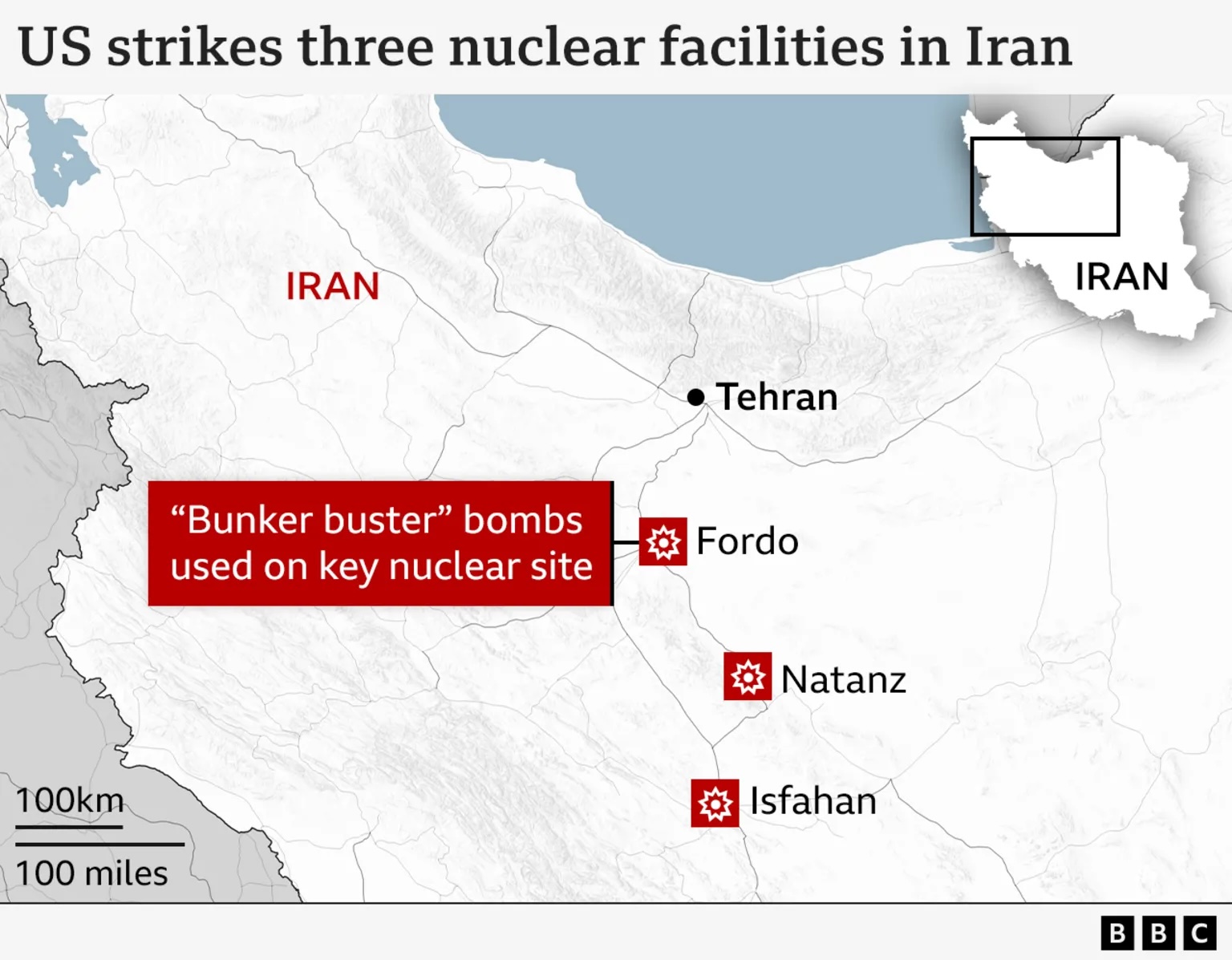
Trump Announces Israel-Iran Ceasefire, Urges Restraint Following Escalating Violence » Capital News
June 24 – U.S. President Donald Trump has announced that a ceasefire agreement between Israel and Iran is now in effect, bringing a fragile pause to nearly two weeks of intensifying conflict that has drawn in several regional players and left scores dead.
The announcement followed a series of retaliatory strikes, including Iran’s missile attacks on southern Israel and a U.S. airbase in Qatar, as well as continued Israeli bombardments inside Iran.
Trump revealed the details of the ceasefire on Monday evening through a post on his Truth Social platform. He outlined a phased implementation, starting with Iran halting its strikes at 04:00 GMT on Tuesday (7:00 a.m. in Israel, 7:30 a.m. in Tehran), followed by Israel at 7:00 p.m. local time (16:00 GMT). If Israel maintains the ceasefire for 12 hours, the truce will be deemed fully in effect. Trump urged both sides not to violate the agreement, calling this a turning point and an opportunity to end what he termed the “Twelve Day War.”
The ceasefire timeline was designed to allow both countries time to wind down ongoing military operations. However, in the hours leading up to the truce, Iran launched several volleys of missiles into Israel, killing at least four people in the southern city of Beersheba. The missile attack was in direct retaliation for U.S. airstrikes conducted on Sunday, which targeted Iran’s nuclear facilities at Fordow, Natanz, and Esfahan. Trump described the strikes as a “very successful operation,” asserting that they had dealt a significant blow to Iran’s nuclear ambitions.
In a related escalation, Iran also launched missiles at Al Udeid Air Base in Qatar, which houses U.S. military personnel. The Qatari Defence Ministry confirmed that the missiles were intercepted and reported no casualties. Qatar condemned the attack as a serious violation of its sovereignty and said it reserves the right to respond. The incident was widely condemned by other Arab nations, including Bahrain, Oman, Saudi Arabia, and Morocco.
Despite the ceasefire announcement, violence continued in other areas. Israeli warplanes struck government and military installations in Iran’s capital, Tehran, while Iran responded with waves of missiles and drones targeting Israeli cities. Explosions were heard in several locations, underscoring the volatility of the situation.
In Gaza, Israeli forces continued their bombardment of the enclave, killing at least 43 people, among them 13 civilians reportedly seeking humanitarian aid. Meanwhile, in the occupied West Bank, Israeli forces shot and killed a 13-year-old Palestinian boy near Ramallah, further stoking tensions.
The international community has cautiously welcomed the ceasefire but raised concern over the mounting humanitarian crisis and civilian casualties. Calls for restraint and a return to diplomatic dialogue have grown louder, with many urging the warring parties to seize the opportunity to pursue a long-term resolution to the conflict.